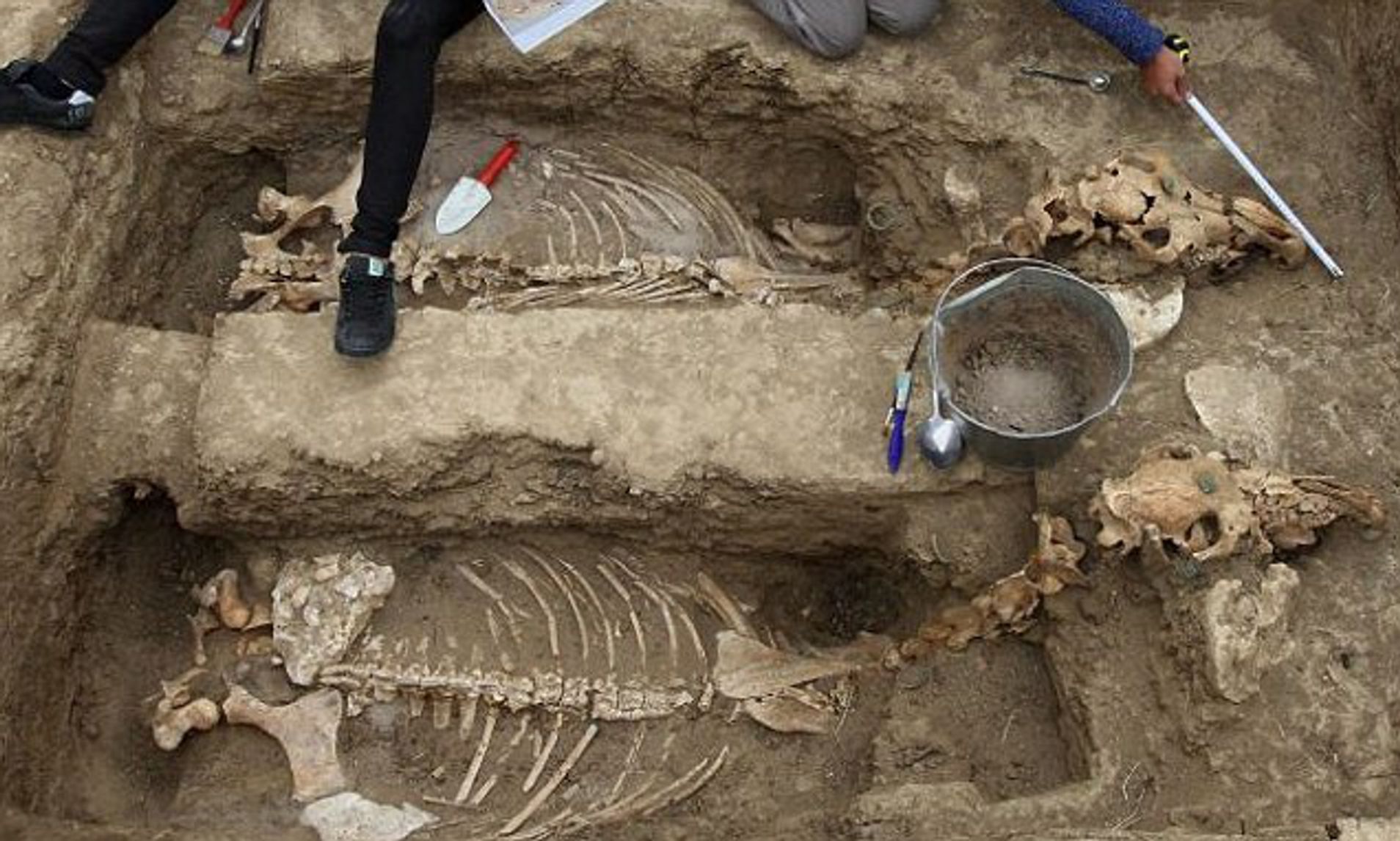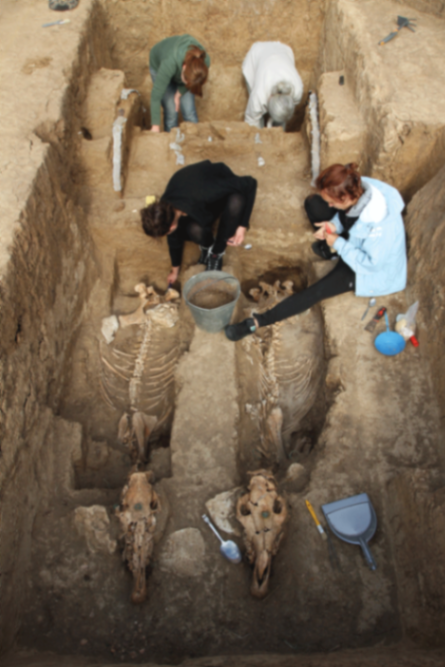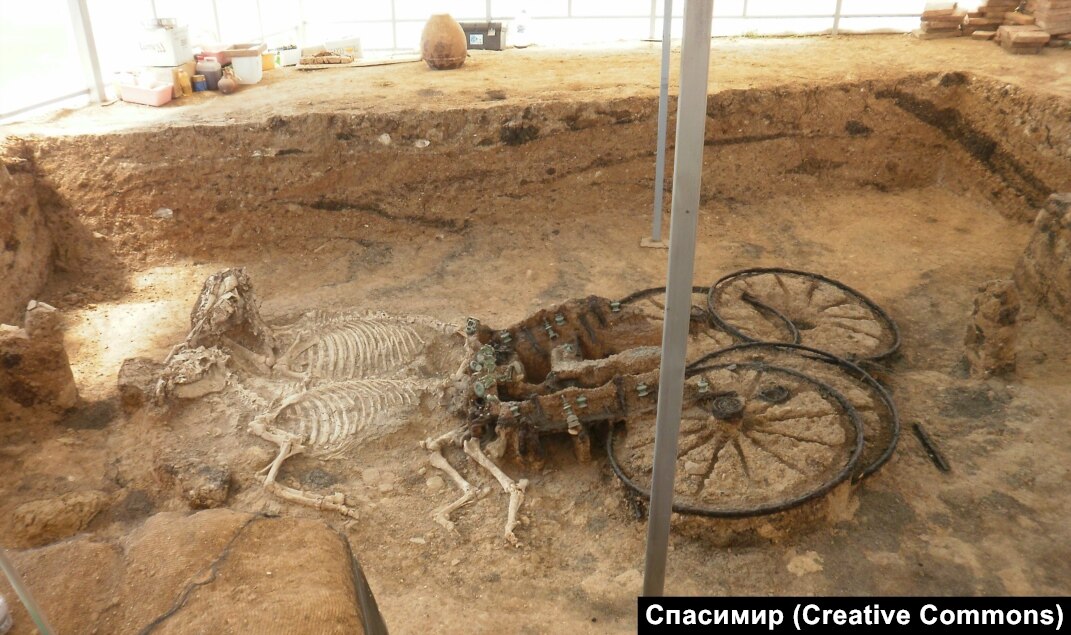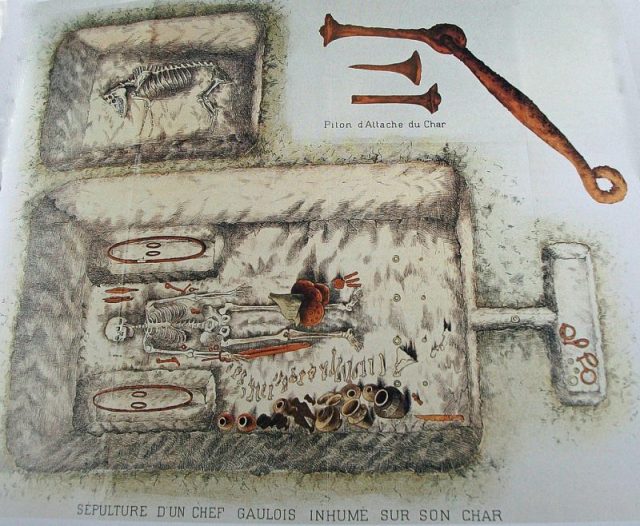
A 2,500-Year-Old Carving, Complete with a Rider and Horses, Was Discovered by Archaeologists.
In Yorkshire, a Chariot from the Iron Age was found, making it the second such find in two years.
In a small town in Yorkshire named Pocklington, on a construction site, houses were built. The discovery was made.
There has now been a delay in construction on the homes as a new dig begins in October.
Interesting is that not only the chariot is discovered but the horse’s skeletons are also found that pulled up the wagon and the driver’s human remains.

The managing director of Persimmon Homes in Yorkshire confirmed that an archaeological discovery of significant importance had been made. That discovery is a horse-drawn chariot from the Iron Age.
He went on to say that excavation is ongoing by archaeologists who will date the find along with detailing it.
During the Iron Age, it was common practice to bury chariots. What the archaeologists were not expecting to find was the remains of the rider of the chariot and the horses that pulled it.
The find dated back to 500 BC and at the time it was the only find of the kind in 200 years. To date, there have only been 26 chariots excavated in the UK.

Archaeologists said that it was unusual for horses to be buried along with the chariot and human remains.
Paula Ware the managing director of MAP Archaeological Practice Ltd said:
In the Iron Age, the chariot was seen to be something of a status symbol owned by those with money.
Including horses in the burial of human remains of such a person is unknown. It is something that has the researchers puzzled.

The Dig Revealed Numerous Artifacts
Archaeologists found pots, shields, swords, spears, and brooches among the many findings.
These all gave researchers a good look into the lives of the people who lived more than 2,500 years ago.
Yorkshire has been a good spot to find the remains of the Arras culture, which have been very well preserved.
Around 150 skeletons were found in the region during 2016, with researchers believing the skeletons were those of the Arras culture.
The skeletons along with their possessions were found in the Yorkshire Wolds, a small market town.





